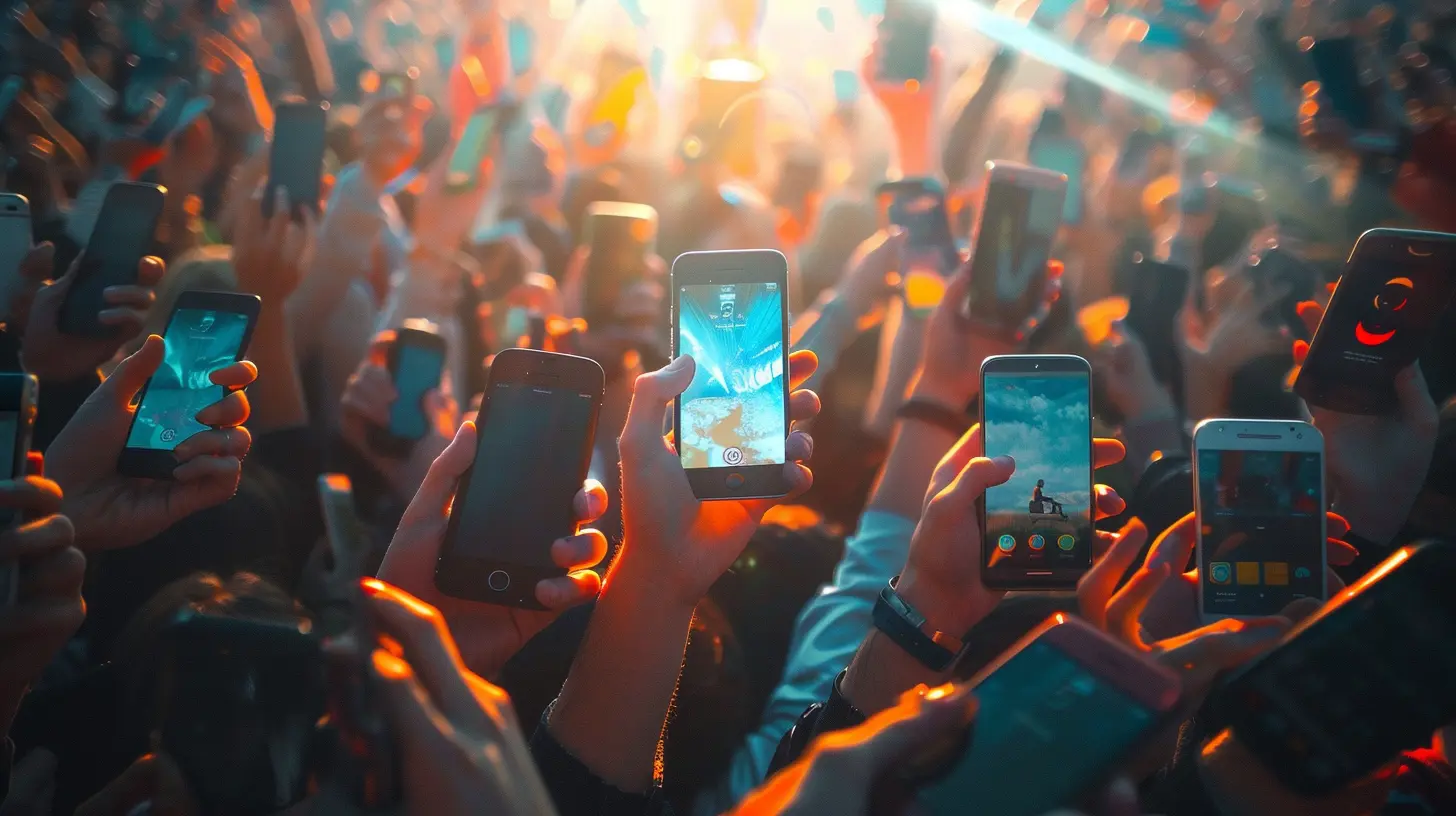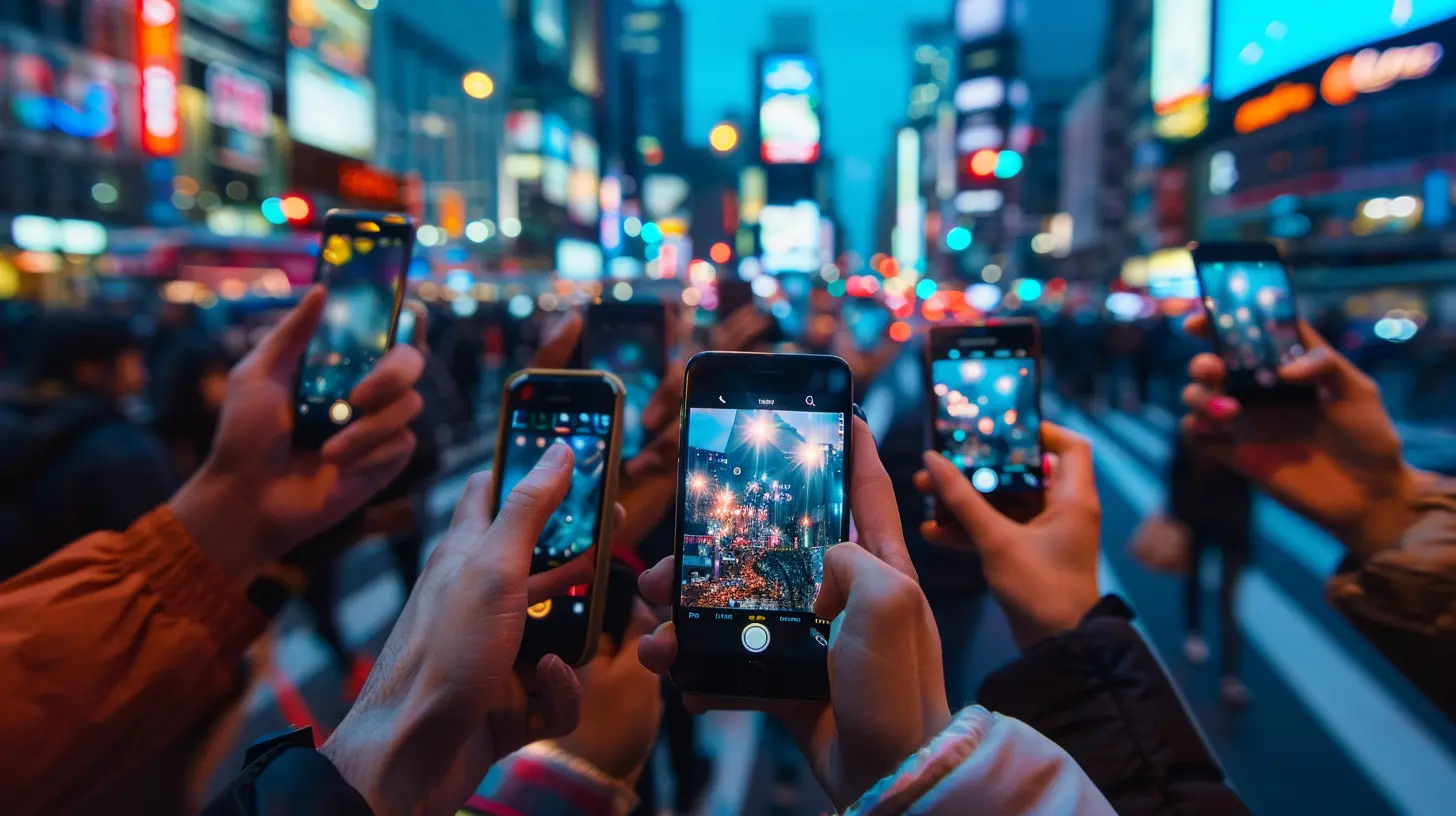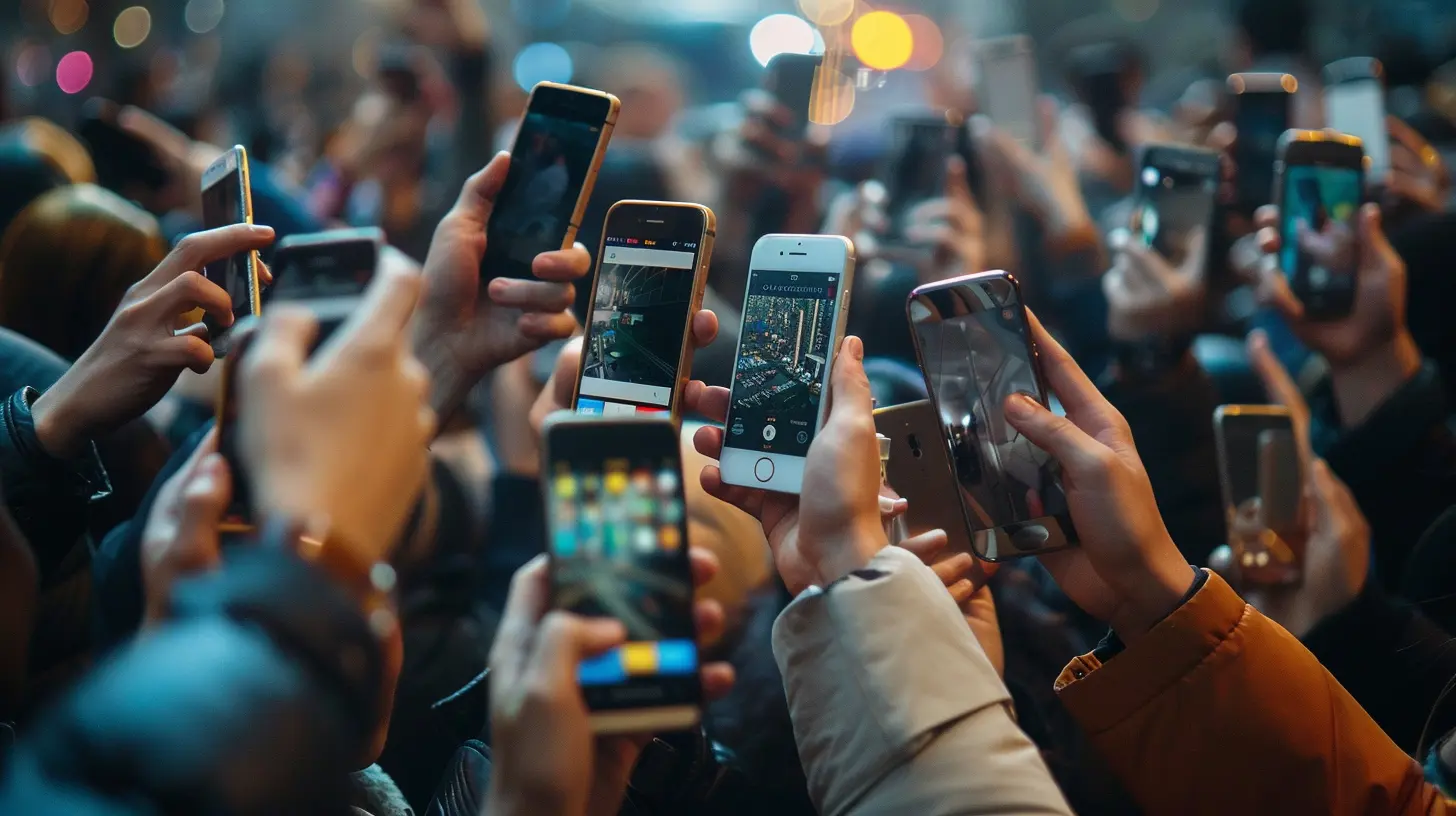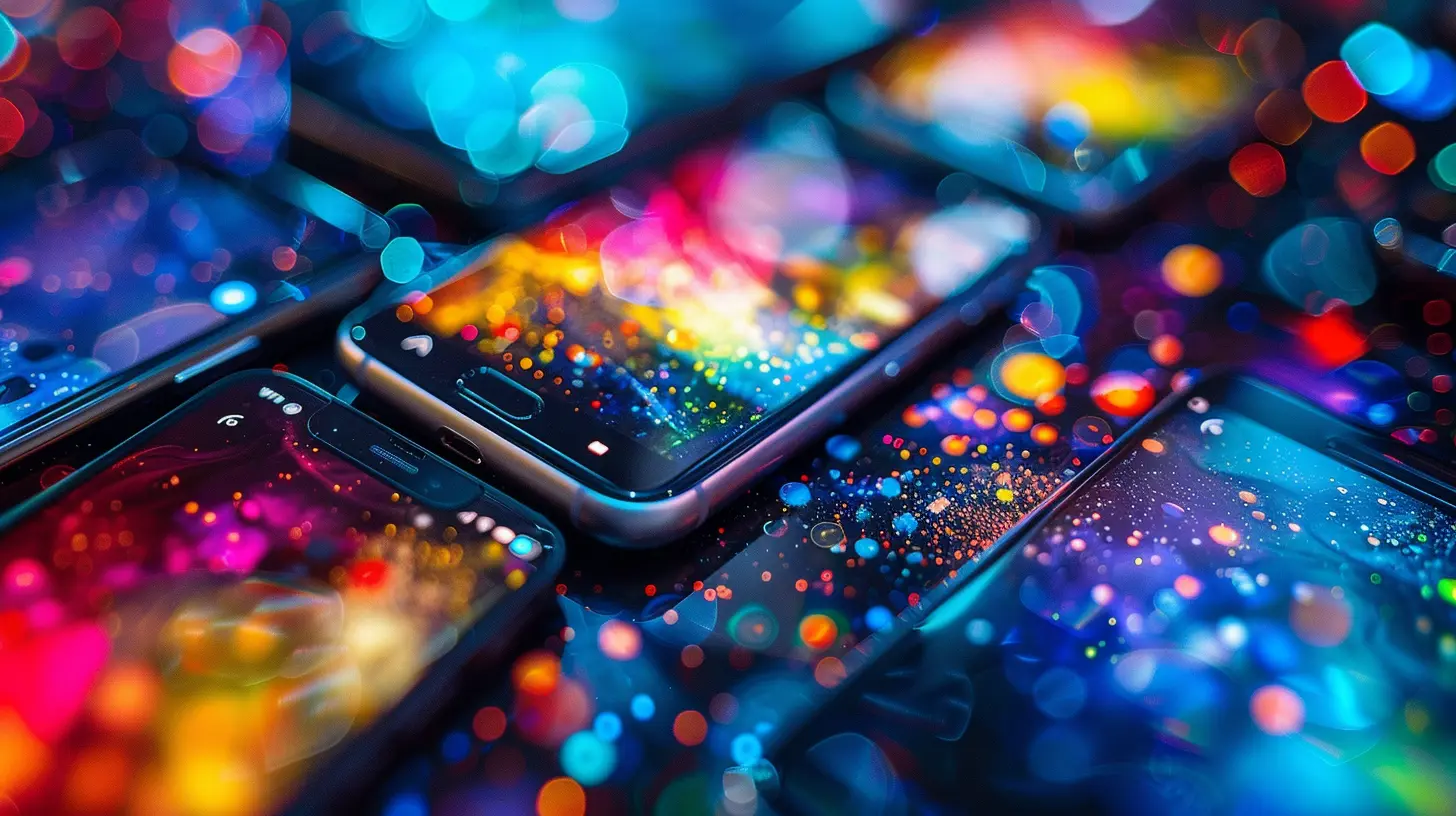22 April 2025
Smartphones—those little pocket-sized marvels—have changed our lives in ways we never imagined. From staying connected with loved ones to ordering food at 2 AM, they’ve become our constant companions. But have you ever stopped to think about how they affect our digital well-being?
Let’s dive into the impact smartphones have on our mental, emotional, and social health. Buckle up because this is going to be an eye-opening ride! 🚀 
📱 What Is Digital Well-Being?
Before we get into the nitty-gritty, let's define digital well-being. Simply put, digital well-being is about maintaining a healthy relationship with technology—especially our smartphones. It’s about balancing screen time, avoiding digital burnout, and making sure our gadgets work for us, not against us.But here’s the catch: smartphones are like a double-edged sword. They can be fantastic tools, but they can also suck us into endless scrolling, notifications, and dopamine-driven habits. So, how exactly do they impact our well-being? Let's break it down! 
📊 The Positive Side: How Smartphones Enhance Digital Well-Being
Despite the criticism, smartphones aren’t all bad! When used wisely, they can significantly improve our mental well-being, productivity, and social lives.🧘♂️ 1. Mental Wellness Apps Keep Anxiety in Check
Ever tried meditation apps like Calm or Headspace? These apps have made mindfulness more accessible than ever. Just a few minutes of guided meditation can help reduce stress and improve focus.Similarly, apps like Moodfit and Daylio allow users to track their emotions, build better habits, and understand their mental health patterns. In other words, our phones can actually help us feel better—if used correctly!
⏳ 2. Smartphones Improve Productivity & Time Management
Imagine going back to a world without digital calendars or reminders. Nightmare, right? Smartphones help us stay on top of our tasks, whether through productivity apps like Trello, Evernote, or Google Keep.Apps like Focus@Will even use neuroscience-based music to boost concentration. So, when used mindfully, smartphones can be powerful productivity boosters!
💕 3. Strengthening Social Connections
Long-distance friendships? No problem. Thanks to messaging apps, video calls, and social media, we can stay connected with friends and family across the globe. Whether it's sending a quick “Thinking of you” text or sharing memes in a group chat, smartphones bring people closer.
⚠️ The Dark Side: How Smartphones Harm Digital Well-Being
Now, let’s talk about the not-so-great aspects of smartphone usage. As much as we love these devices, they can be addictive, distracting, and mentally exhausting.📵 1. Smartphone Addiction & Dopamine Loops
Ever caught yourself scrolling mindlessly for hours? That’s because social media apps are designed to keep you hooked. They trigger dopamine releases, making you crave that next like, comment, or notification.Before you know it, 10 minutes of scrolling turns into two hours of wasted time. This addiction can lead to anxiety, poor sleep, and decreased attention span.
🌙 2. Poor Sleep Due to Blue Light Exposure
If you’re guilty of scrolling through your phone in bed (let's be honest, we all are), you're not alone. But did you know the blue light from screens tricks your brain into thinking it’s daytime?This disrupts our circadian rhythm, making it harder to fall asleep. The result? Groggy mornings, mood swings, and decreased focus. The solution? Consider putting your phone away at least an hour before bedtime or using blue light filters.
🚪 3. Reduced Real-Life Social Interaction
Ironically, while smartphones connect us digitally, they can also make us disconnected in real life. How many times have you ignored a conversation at the dinner table just to reply to a text?It’s a real problem—face-to-face interactions are crucial for mental well-being and social skills. Texts and emojis can’t replace real emotions, eye contact, and human connection. 
🛠️ How to Use Smartphones for Better Digital Well-Being
The good news? We don’t have to ditch smartphones completely—we just need to use them wisely! Here’s how:⏳ 1. Set Screen Time Limits
Most smartphones now have built-in screen time tracking (thank you, tech gods!). Set daily limits on apps that consume too much of your time—whether it’s Instagram, TikTok, or YouTube.🌙 2. Use "Do Not Disturb" Mode
Try enabling Do Not Disturb during work hours or bedtime. You’ll be amazed at how much more peaceful and productive your day becomes.📴 3. Practice "Phone-Free" Hours
Create tech-free zones in your home. For example, no phones at the dinner table or before bed. This helps in strengthening relationships and improving sleep quality.⚡ 4. Follow the “30-Minute Rule” in the Morning
Resist the urge to check your phone the moment you wake up. Instead, take the first 30 minutes of your day for yourself—whether it’s meditating, journaling, or just enjoying your coffee.📚 5. Replace Mindless Scrolling with Meaningful Activities
Instead of doom-scrolling, why not try learning a new skill? Use apps like Duolingo (language learning), Blinkist (book summaries), or Coursera (online courses) to make better use of your screen time.🎯 Final Thoughts
Smartphones are neither angels nor monsters. They enhance our lives when used wisely but can also harm our well-being if we let them take over. The key lies in mindful usage—making them work for us, not controlling us.So, next time you pick up your phone, take a moment to ask yourself: "Is this adding value to my life, or am I just on autopilot?" Small changes in smartphone habits can lead to a healthier, happier, and more balanced digital life.
Remember, you control your phone—it shouldn’t control you.


